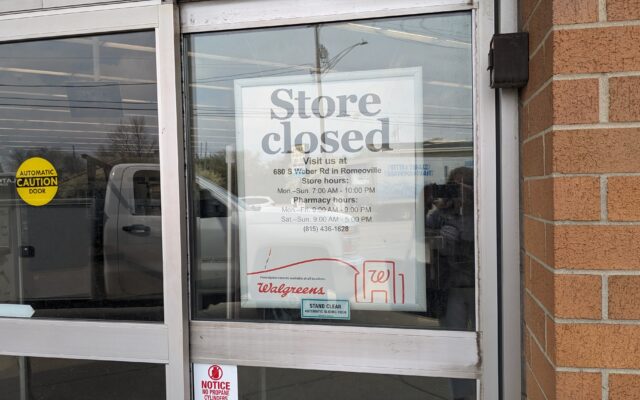Will County Officials Explain Opioid Crisis To HHS Regional Director
March 18, 2019 5:45AM CDT

The Will County Board hosted United States Department of Health and Human Services (HHS) Regional Director Doug O’Brien at its Committee of the Whole meeting Thursday, March 14. O’Brien provided an update about federal efforts in the opioid crisis and heard from several department heads about programs in the county. O’Brien gave a brief history of overdose deaths across the nation with 78 overdose deaths from heroin in 1970 to 94 overdose deaths from cocaine in 1984 to 2,411 overdose deaths from opioid misuse in 2016. He said opioid overdose deaths surpassed all combat deaths in the 20th century.

“What is important today to recognize addiction is a physiological illness,” O’Brien said. “We must continue to expand access to naloxone and change regulations to increase capacity for recovery. The FY 2019 budget is allocating $10 billion in HHS opioids funding.” O’Brien also reported a decrease in monthly prescribing practices by medical professionals of 24 percent between January 2015 and July 2018 and a 5,400 percent increase in naloxone dispensing during this same time period.
“There are signs of progress but we are nowhere near where we need to be,” he added. Chief Judge Richard Schoenstedt reported on the county’s Vivitrol program for incarcerated
individuals and the specialty courts in the 12th Judicial Circuit. States Attorney James Glasgow and Drug Court Coordinator Julie McCabe-Sterr talked about the success of the specialty courts
and the Drug Court recovery homes.
Dr. Kathleen Burke, Director of Substance Use Initiatives in the Office of Will County Executive Larry Walsh, talked about her work in the county under the Drug Overdose Prevention Program (DOPP) grant from the Illinois Department of Human Services/Division of Substance Use Prevention and Recovery which includes training the public how to deliver naloxone and
bridging gaps in service. Sue Olenek, executive director of the Will County Health Department shared information about the services available and the department’s participation in the
Prescription Drug Monitoring Program and Deputy Chief Dan Jungles talked about the change in the culture of the sheriff’s office from enforcement to prevention, intervention, and treatment.
“We are proud in Will County to have all of these different department programs work together for the primary reason of saving lives,” Burke said. “This is a multi-level approach to
educate people about the dangers of opioid misuse, help people access treatment, and plan for a complete recovery program that will become a successful way of life.”
Added O’Brien, “I am impressed with the collaboration in Will County. These branches of government, executive and judicial, are working closely together to ensure the safety of the
residents. Will County is ahead of this issue on many fronts.”






